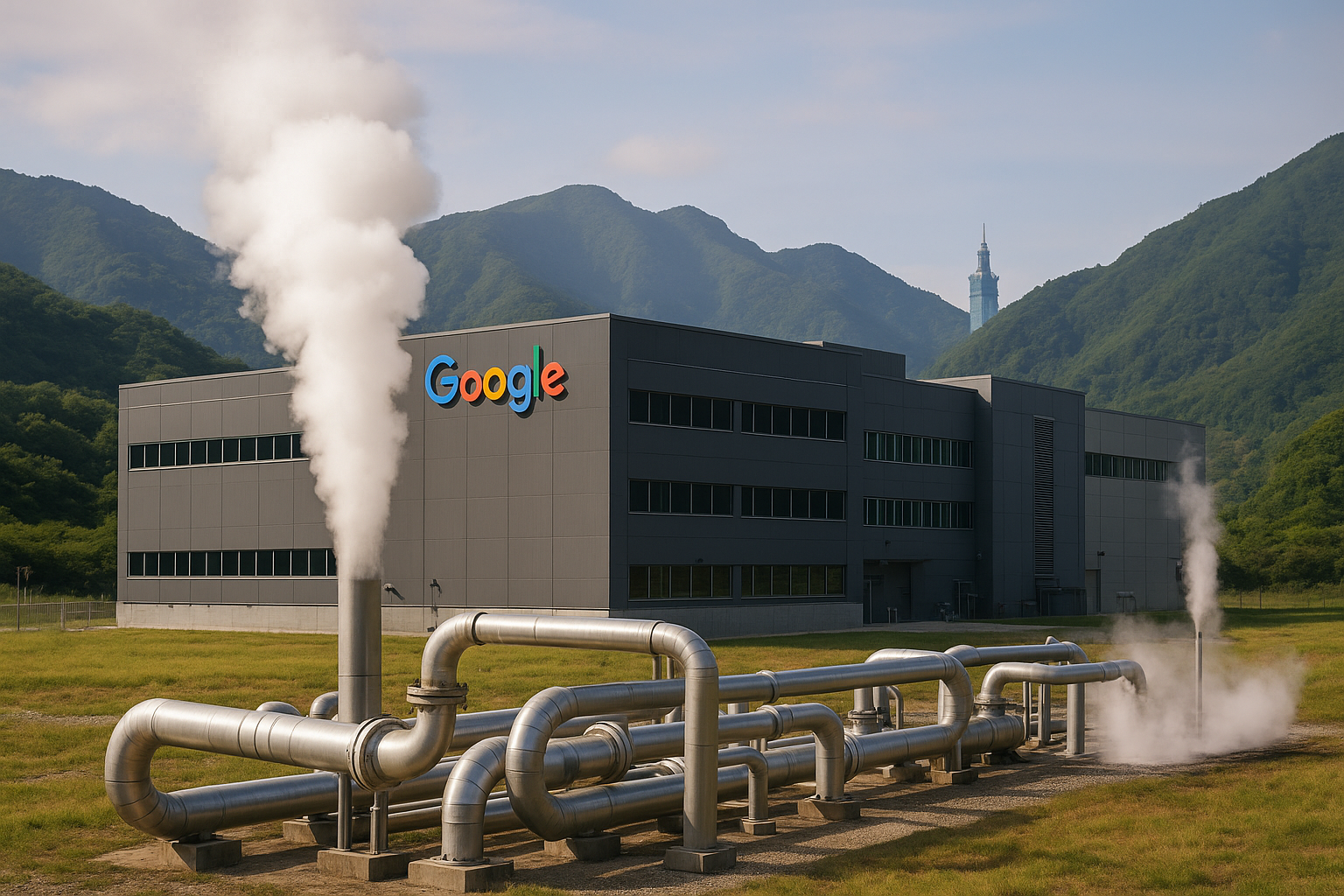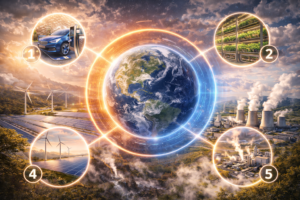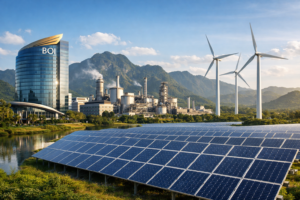พลังงานสะอาดที่จ่ายไฟได้ตลอด 24 ชั่วโมงแบบไม่ปล่อยมลพิษกำลังกลายเป็นหัวใจสำคัญในการลดคาร์บอนทั่วโลก ล่าสุด Google เซ็นสัญญาซื้อไฟฟ้าพลังงานความร้อนใต้พิภพ (Geothermal Power Purchase Agreement หรือ PPA) ฉบับแรกของไต้หวัน ส่งสัญญาณให้ตลาดพลังงานเอเชียขยับเข้าสู่ยุค “ไฟฟ้าปลอดคาร์บอนตลอดเวลา” อย่างจริงจัง
ภาพรวมข้อตกลง 10 เมกะวัตต์: ดันกำลังผลิตพลังงานความร้อนใต้พิภพของไต้หวันเพิ่มเท่าตัว
ข้อตกลงนี้จะนำพลังงานความร้อนใต้พิภพ 10 เมกะวัตต์เข้าสู่โครงข่ายไฟฟ้าไต้หวันภายในปี 2029 ซึ่งเพียงดีลเดียวก็เพิ่มกำลังผลิตเชิงพาณิชย์ของประเทศเป็นสองเท่าจากฐานเดิมที่มีอยู่ราว 10 เมกะวัตต์เท่านั้น ไฟฟ้าที่ได้จะป้อนให้ศูนย์ข้อมูล (data center) สำนักงาน และทีมวิจัยฮาร์ดแวร์ของ Google ในไต้หวัน ช่วยลดการพึ่งพาไฟฟ้าจากเชื้อเพลิงฟอสซิลอย่างมีนัยสำคัญ
พลังงานความร้อนใต้พิภพคืออะไร เหตุใดจึงตอบโจทย์ไฟฟ้า 24 ชั่วโมง
พลังงานความร้อนใต้พิภพอาศัยความร้อนธรรมชาติจากใต้ผิวโลก เปลี่ยนความร้อนเป็นไอน้ำขับกังหันผลิตไฟฟ้า ข้อได้เปรียบสำคัญคือ “ความต่อเนื่อง” เพราะไม่พึงพาแสงอาทิตย์หรือลม จึงสามารถทำให้พลังงานคงที่ได้ทั้งกลางวันและกลางคืน นับเป็นโซลูชั่นที่สมบูรณ์แบบสำหรับภาคเทคโนโลยีที่ต้องใช้ไฟฟ้าไม่ขาดช่วงอย่างศูนย์ข้อมูลของ Google
ก้าวสำคัญสู่เป้าหมาย Carbon-Free Energy 24/7 ของ Google ภายใน 2030
Google ตั้งเป้าลดการปล่อยก๊าซคาร์บอนสุทธิเป็นศูนย์ (Net Zero) ภายในปี 2030 และเป้าหมาย 24/7 CFE (ใช้พลังงานปลอดคาร์บอนตลอด 24 ชั่วโมง ทุกวัน)ดังนั้นการเพิ่มการผลิตไฟฟ้าจากความร้อนใต้พิภพในเอเชียจึงเป็นชิ้นส่วนสำคัญของกลยุทธ์ โดยช่วยถ่วงดุลพลังงานหมุนเวียนแบบไม่เสถียรอย่างลมและแสงอาทิตย์ ลดความจำเป็นในการซื้อคาร์บอนเครดิตหรือใบรับรองการผลิตพลังงานหมุนเวียน (Renewable Energy Certificate, RECs) เพื่อชดเชยการปล่อยก๊าซฯ ขององค์กร
หนุนแผนพลังงานหมุนเวียนของไต้หวัน 6 กิกะวัตต์ภายใน 2050 พร้อมสร้างงานท้องถิ่น
รัฐบาลไต้หวันตั้งเป้าติดตั้งพลังงานความร้อนใต้พิภพ 6 กิกะวัตต์ภายใน 2050 ดีลของ Google จึงสร้าง “ดีมานด์ระยะยาว” ที่ยกระดับความเชื่อมั่นของนักลงทุน เพิ่มการจ้างงานในพื้นที่สำรวจ ขุดเจาะและก่อสร้างโรงไฟฟ้า อีกทั้งกระตุ้นให้หน่วยงานรัฐเร่งปรับปรุงกฎระเบียบและขั้นตอนอนุญาตที่ยังเป็นอุปสรรคต่อการพัฒนาพลังงานประเภทนี้
ผลสะเทือนต่ออุตสาหกรรมเทคโนโลยี ต้นแบบสำหรับองค์กรที่ต้องการไฟสะอาดและมั่นคง
การที่บริษัทเทคโนโลยียักษ์ใหญ่อย่าง Google เลือก “ความร้อนใต้พิภพ” เป็นแหล่งพลังงาน 24/7 ส่งผลเชิงสัญลักษณ์ให้ภาคธุรกิจหันมามองแหล่งพลังงานสะอาดที่ ‘firm’ มากขึ้น ไม่ใช่แค่ลม-แดด การมีอุปสงค์ระยะยาวจากองค์กรระดับโลกยังช่วยลดต้นทุนโครงการในอนาคต กระตุ้นนวัตกรรม เช่น Enhanced Geothermal Systems (EGS), Closed-Loop Geothermal Systems, และ Supercritical Geothermal Systems เป็นต้น







